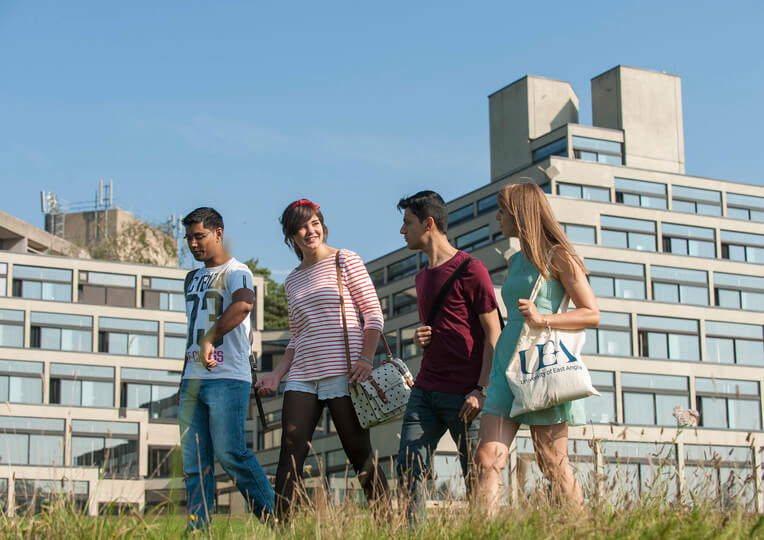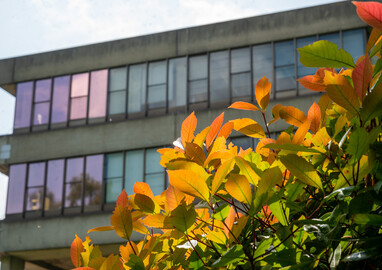Latest News

MPs consider plan to stem voter registration crisis
Elections experts from the University of East Anglia (UEA) tell parliamentarians they must consider immediate action to stem a growing voter registration crisis.
Read more
UEA researchers work with local councils to tackle air pollution from idling engines
Findings from a trial conducted in Norwich show that using road signs informed by behavioural science can help encourage car drivers to turn off their idling engines in one of the citys worst areas for air pollution.
Read more
Restored Suffolk feature film to be screened this weekend
A much-loved Suffolk feature film has been restored and will be shown at special screenings this weekend.
Read more
UEA archive blooms with nature writers' new contributions
With the addition of two prominent British nature writers archive material, the British Archive for Contemporary Writing (BACW) is fast establishing itself as the home of writing about the natural world.
Read more
UEA partners in major UK-India literary exchange
UEA is a partner in an 88k Arts Council England investment in a collaborative project between Norwich and aspirant City of Literature Kolkata.
Read more
Experts call for WHO to rethink “unacceptable” plans
The World Health Organization (WHO) has been accused of washing its hands of older people in its proposed priorities for future work.
Read more
Television presenter Jake Humphrey announces UEA scholarship
Television presenter Jake Humphrey is launching 'The Jake Humphrey Scholarshipin Film, Television and Media Studies at the University of East Anglia (UEA), based in his home city of Norwich.
Read more
Event encourages local school children into coding
From Pac Man to Space Invaders, local school children will recreate the golden age of video games at the University of East Anglia (UEA) on Thursday 20 June.
Read more
Schoolchildren to celebrate creative writing at two UEA events
Two events are taking place at UEA next week (Monday 24 June to Friday 28 June) with children from underrepresented backgrounds coming to the University to be inspired to get into creative writing: FLY Festival and the Undercover Readers celebration event
Read more
Norfolk duo attempt challenging tandem race at festival
A GB triathlete from the University of East Anglia (UEA) will guide a visually impaired Paralympic athlete as they both attempt the 100-mile tandem ride during the Great British Cycling Festival, which comes to Norfolk this week.
Read more
UEA outreach celebrates first students to complete four-year programme
The University of East Anglia (UEA) rewarded the first young people to complete all four years of the Universitys scholarship programme at a celebration event on campus yesterday evening (Monday 24 June).
Read more
Con-grad-ulations! Local primary schoolchildren to dress up for UEA graduation ceremony
As the University of East Anglia (UEA) gears up for graduation week (Monday 15 July-Friday 19 July), over 200 local primary schoolchildren will be getting in first as they don mortarboards and gowns to celebrate their own graduation ceremony next week.
Read more


